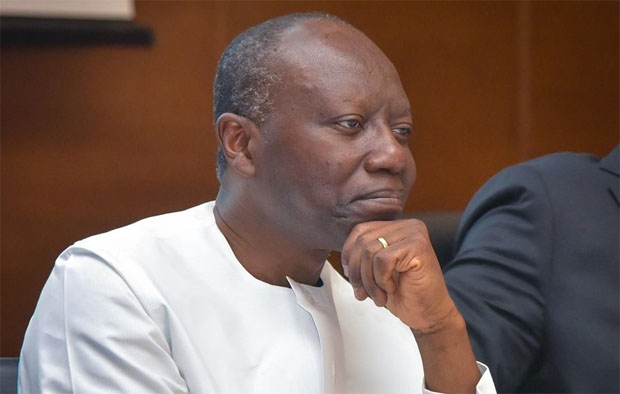Ken Ofori-Atta
The Minister for Finance, Ken Ofori-Atta, on Monday, October 28, 2019, inaugurated a government-led Energy Sector Recovery Programme Steering Committee.
The Committee comprise of members across various sectors and ministries.
The inauguration of the Energy Sector Recovery Programme Steering Committee is part of the initiation of the collaborative consultation process between Government and each Independent Power Producer (IPP) and Gas Supplier (GS) in an effort to resolve energy issues in a manner that is sustainable for both Ghana and its partners
“The purpose of the Steering Committee is to take responsibility for the consultation process with the IPPs and GSs over the coming months, with the objective of ensuring a sustainable energy partnership with each IPP and GS,” Mr. Ofori-Atta said in his inaugural speech.
The inauguration is part of a decision made by the Energy Sector Recovery Task Force, as mandated by Cabinet to ensure and oversee the implementation of the Energy Sector Recovery Programme (ESRP).
The Steering Committee is expected to help implement the ESRP, which identifies key issues in the energy sector and proposes solutions.
At the Mid-Year Fiscal Policy Review of the 2019 Budget Statement and Economic Policy & Supplementary Estimates for the Government of Ghana for the 2019 Financial Year, presented to Parliament on 29th July 2019, Government announced its intention to rationalise the commercial agreements in Ghana’s energy sector, including reassessing all take or pay contracts and imposing a moratorium on the signing of new power purchase agreements in the energy sector.
Mr. Ofori-Atta explained that “the Steering Committee is of key importance for the future of Ghana’s energy sector and Ghana’s long-term sustainable development,” said the Minister for Finance. “Government has been working hard to establish a long-term sustainable strategy for a competitive and dynamic energy sector where private investments can thrive, and the interests of the Ghanaian people and businesses continue to flourish.”
Since August 2019, the Ministry of Finance and the Ministry of Energy have been engaging with IPP and GS representatives in order to find solutions that result in a fair outcome for all stakeholders – both the Ghanaian people and investors. And the inclusive composition of the steering committee is expected to help comprehensively address the issues at hand.
Ghana’s installed capacity is almost double its peak demand, with an installed power generation capacity of 5,083 MW, a dependable capacity of 4, 593 MW and a peak demand of around 2,700 MW.
BY Melvin Tarlue


